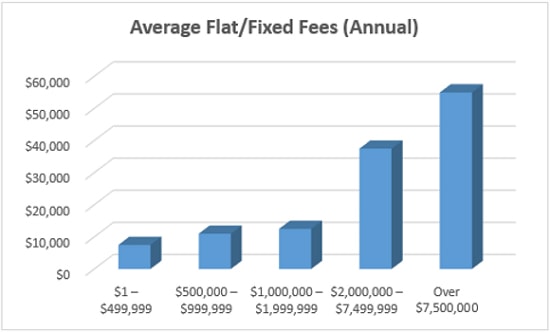
A career in software engineering requires a deep understanding of software development processes, modelling and structuring problems, as well as the ability to translate end user requirements into technical requirements. Software engineers must be able to build and test software. Software engineers are usually team-oriented and project-oriented. The role of a software engineer is to assist in the software's development, deployment, and maintenance. This article will outline the fundamental skills needed to succeed in this area.
Job description
If you're in the market for a software engineer job, you can write a killer software engineer job description to attract top candidates. You can write a software engineering job description in many different ways, regardless of whether you're looking to get a full-time or contract job. Before you hire a software engineer, think about what your company is trying to accomplish. Perhaps you want to revolutionize finance through machine learning, or provide technical solutions to scale growth. Whatever your motivation, your job description should be driven by it.

Salary
The salary for a software engineer depends on several factors. The type of work and the location of your employer are both important. This salary data is averaged across a two-month period. The taxes are calculated using 2018 federal and state tax tables. There may be additional taxes in some metro areas that are not included. The information provided in this article should be used for informational purposes only.
Career paths
Software engineers can choose from several career tracks. They can decide to become freelance or contract workers. Each type offers unique opportunities for growth. Both types of software engineers are classified by the US Bureau of Labor Statistics as engineers. These are the common paths for software developers. These careers often begin as entry level engineers. They will gain more experience as they become more skilled and they can be promoted to higher levels. Software developers can become, for example, a senior software engineer or project manager or chief tech officer.
Education is required
The education required for a software engineer position is relatively straightforward. Software engineers design and maintain software for various applications. Many of these programs revolve around relational database and require strong analysis skills. Non-relational databases like Mongo DB or BigTable are also available, which is popular among web developers. Quality degree programs will focus on logical decision-making, written and spoken communication, professional ethics, customer service, and professionalism. You can begin studying to become a software engineer if you already have a degree in computer science.

Work environment
Software engineers spend long hours working behind a computer. They must constantly communicate with colleagues and explain complicated programs to people who do not know much about software development. Prolonged computer usage can lead to eye strain, back pain, and carpal tunnel. Creativity must be encouraged at work. However, there are some employers that offer incentives to developers. Listed below are some of the best features of a software engineer's working environment.
FAQ
How much does it cost to hire a consultant?
There are many factors that influence the price of consulting services. These are:
-
Project size
-
Time frame
-
Scope of work
-
Fees
-
Deliverables
-
Other factors such as location and experience are also important.
Why would a company pay a consultant?
A consultant provides expert advice on how to improve business performance. They are not there to sell you products.
A consultant helps companies make better decisions by providing sound analysis and recommendations for improvement.
Consultants often work with senior management to help them understand how to succeed.
They also provide leadership training and coaching to ensure employees develop the skills necessary to perform at peak levels.
They may be able to advise businesses on ways to cut costs, improve efficiency, and streamline processes.
What is the difference in a consultant and advisor?
An advisor is someone who provides information about a subject. A consultant is able to provide solutions.
Consultants work directly with clients to help them reach their goals. The advisor provides indirect advice through books, magazines lectures, seminars, and the like.
What should I expect from my consultant
Once you select your consultant, you should expect to hear back from them within a few days. They will usually ask for information about your company, including its mission, goals, products, services, budget, etc. After receiving this information, they will prepare a proposal outlining their scope of work, estimated timeline, fees, deliverables and milestones.
If everything looks good, then the two parties will negotiate a written contract. The type of relationship between the parties (e.g., employee-employer, independent contractor-employer) will affect the terms of any contract.
If all goes well, the consultant will start working immediately. S/he will have access to your internal documents and resources, and you'll have access to his/her skills and knowledge.
But don't assume that anyone who is a consultant has all the answers. It takes practice, effort and practice in order to be an expert in any area you consult. Your consultant should not assume that they know everything about you business.
How do I choose a good consultant?
Three main factors should be considered:
-
Experience - How many years of experience is this consultant? Is she a beginner, intermediate, advanced, expert, or something else? Does her resume demonstrate that she has the required skills and knowledge
-
Education – What did this person learn at school? Did he/she pursue any relevant courses once he/she graduated? Can we see evidence of that learning in the way s/he writes?
-
Personality - Are we attracted to this person? Would you want this person to work for you?
-
These questions are used to determine if the candidate is right for us. If the answers to these questions are unclear, it might be worth a first interview to get more information about the candidate.
Are you a consultant?
Consulting is more than a job that allows you to quickly make money.
There are many opportunities for consulting, including project management, strategy, training and leadership. You might find yourself working on projects ranging from small start-ups to large-scale international corporations.
Consulting offers you the chance to improve and sharpen your skills as well as gain valuable experience across a range industries. This could include learning to manage teams and write proposals, manage finances, analyze data, create presentations and conduct market research.
How much do consultants make?
While some consultants make $100k+ per year, most consultants only earn between $25-$50k. The average salary for a consultant is $39,000. This applies to both hourly and salaried consultants.
Salary depends on experience, location, industry, type of contract (contractor vs. employee), and whether the consultant has his/her own office or works remotely.
Statistics
- WHY choose me: Why your ideal client should choose you (ex: 10 years of experience and 6-week program has helped over 20 clients boost their sales by an average of 33% in 6 months). (consultingsuccess.com)
- 67% of consultants start their consulting businesses after quitting their jobs, while 33% start while they're still at their jobs. (consultingsuccess.com)
- On average, your program increases the sales team's performance by 33%. (consultingsuccess.com)
- So, if you help your clients increase their sales by 33%, then use a word like “revolution” instead of “increase.” (consultingsuccess.com)
- According to IBISWorld, revenues in the consulting industry will exceed $261 billion in 2020. (nerdwallet.com)
External Links
How To
How do I find a good Consultant?
Knowing what you need from your consultant is the first step to finding a qualified consultant. Do you want them helping you improve your website's performance or not? You may want them optimizing your site to rank higher for search engines. Or perhaps you just want someone who can tell if there are any issues with your current hosting provider. You need to know what kind of services you want, and then you can begin looking at other companies. There are many consultants out there who claim they can provide these services, but only a few actually live up to their claims. So how do you go about choosing one? These are some things you should consider when choosing a consultant.
-
Get referrals. Referring to other consultants is the best way of choosing a consultant. Because you are likely to pay too much, you shouldn't hire someone who you have never heard of. But you also don't want to work with someone whose reputation isn't solid. If you're lucky enough to get referrals from people you trust, then great! But even if you don't, you still might be able to check reviews online. Look for testimonials and case studies where clients have used your service.
-
Ask around. Many people are unaware that hiring a consultant could make a difference. They assume that their current situation is fine and they don’t need changes. This is often not true. Even if you are seeing great results, it is likely that you have not been keeping up to date with technology and trends. And if you're relying on outdated methods, you'll miss out on opportunities to grow your business. It's always worth asking for referrals to find good consultants.
-
You should verify their qualifications. You don't need to worry about whether they are building a website or an eCommerce store worth millions. Check that they are qualified to complete the tasks and have enough expertise in the chosen area.
-
Find out what kind of projects they specialize in. You might think that everyone can handle all projects, but this is false. Some areas require specific types of training or education. You wouldn't hire someone who can build a WordPress theme if they aren't experts in Drupal. The same goes for graphic design, programming languages, etc. Be sure to ask what kinds of projects they typically work on.
-
You should know their prices. As we stated, you don’t want to pay too little for a consultant. But you also don't want to pay too little either. There are many different types of consultants. While some consultants charge an hourly rate, others bill per project. Knowing exactly what you're paying upfront will save you money down the road.
-
Know what they offer. Do they offer free consultations? Can they provide advice on how to setup your own system? Are they able to guarantee that your site will rank better after working with you? You have the right to cancel at any time if you aren't satisfied with what was said during your consultation.
-
Ask if they offer discounts over multiple months or for years. Many consultants offer discounted pricing for extended time periods. While you don't necessarily need to commit for a whole year, you can still take advantage of any deals that they offer.